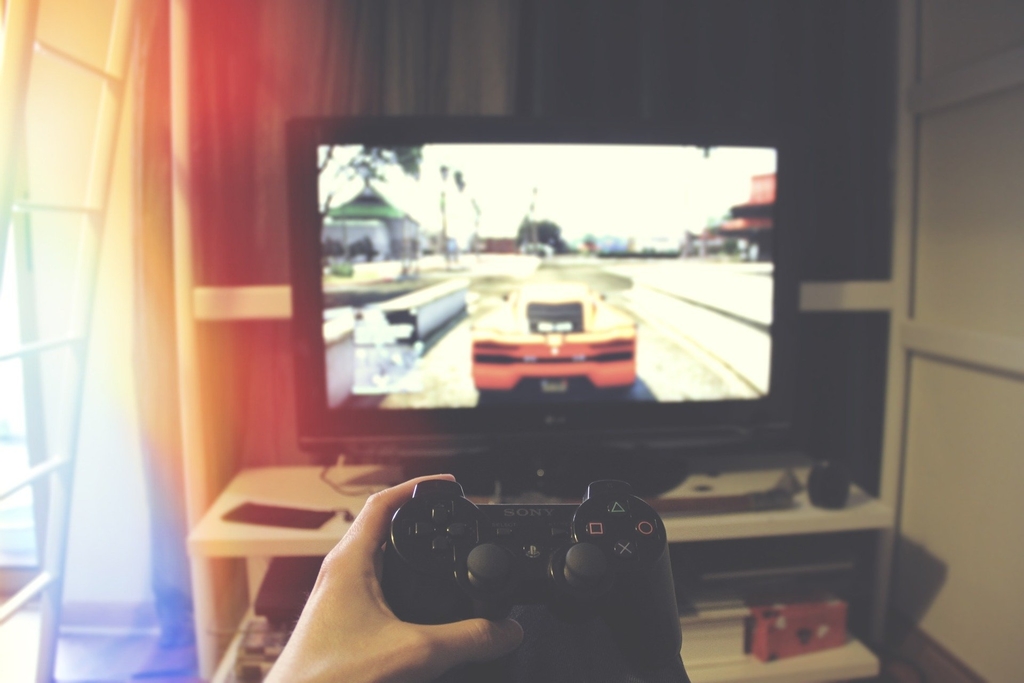Written by Regina Enriquez and Edited by Mehr Kaur Bawa

Video games are rising in popularity among adults and adolescents. More than two billion people play video games worldwide, and the average gameplay time is increasing— from an estimated 5.1 hours per week in 2011 to 6.5 hours per week in 2017 [1]. Playing video games can serve as stress relief by allowing an escape into a new digital environment. However, this can be problematic if a video game addiction forms, in which frequent gaming prevents one from fulfilling daily responsibilities and ultimately leads to a negative impact on well-being. On the other hand, video game engagement, or moderate passionate interest and immersion, is a less serious issue with minimal negative consequences [2]. Numerous studies are analyzing the relationship between the amount of time spent playing video games and its potential effects on psychological functioning. Research suggests that coping mechanisms—how a person responds to stressful situations—could also factor into this relationship.
There are two types of coping mechanisms: approach and avoidance. Approach coping mechanisms involve actively focusing efforts on confronting the issue, whereas avoidance coping completely ignores or avoids the situation altogether [2]. In 2019, a study published in Frontiers in Psychology gathered data on 2,734 participants’ personality, psychological health, and gaming habits. The results of their questionnaire indicated a negative correlation between video gaming done problematically and psychological functioning. Distraction-motivated gamers rarely practiced approach coping mechanisms and instead opted to cope through denial, self-blame, substance abuse, and other counterproductive methods. These gamers reported an overall negative effect on mental health with “low self-esteem and low life satisfaction,” whereas social-motivated gamers were associated with better psychological functioning as they sought to increase online friendships and improve upon their talents [1]. Furthermore, a 2016 study from the International Journal of Mental Health and Addiction found that bad coping strategies partially linked video game addiction with poor mental health. This study issued questionnaires to assess the participants’ level of video game engagement and mental health symptoms using the Computer Addiction-Engagement Scale (CAES) and Depression Anxiety Stress Scale, respectively. The Approach/Avoidance Coping Questionnaire was also given to assess the preferred coping method of each of the participants. Based on the online survey results of these diagnostic techniques, those with video game addiction often practiced avoidance coping and exhibited greater stress, anxiety, and depression levels than those with video game engagement [2].
High levels of engagement isn’t necessarily a bad thing, however, as it can aid in mental health recovery. From a 2018 study published in Social Science and Medicine, scientists observed that a majority of the 20 veteran participants developed healthier coping strategies from playing video games. Veterans are commonly diagnosed with post-traumatic stress disorder (PTSD), a mental health condition characterized by severe anxiety and intrusive memories of a terrifying event [3]. Due to their PTSD, some individuals may have a history of substance abuse and recurring suicidal ideations due to traumatic war experiences [3]. In this study, recreational game play proved beneficial to the participants because it enabled them to build more social relationships, develop a sense of purpose, and manage emotions in a controlled environment [3]. However, this is only one particular case and the results from one research study may not be directly applicable to other individuals not analyzed in the study; therefore, video gaming shouldn’t be substituted for professional help.
Since video game research is a relatively new field, selective interpretation of data and lack of clinical validity make it difficult to gather conclusive evidence on how psychological functioning is affected by video gaming [4]. While coping mechanisms may factor into the relationship, other factors such as pre-existing mental health conditions and the video game genre can also serve as mediating variables.
References
- von der Heiden, J.M., Braun B., Müller K.W., Egloff, B. (2019). The Association Between Video Gaming and Psychological Functioning. Frontiers in Psychology, 10:1731.
- Loton, D., Borkoles, E., Lubman, D., Polman, R. (2016). Video Game Addiction, Engagement and Symptoms of Stress, Depression and Anxiety: The Mediating Role of Coping. International Journal of Mental Health and Addiction, 14:565–578.
- Carras, M.C., Kalbarczyk A., Wells K., Banks J., Kowert R., Gillespie C., Latkin, C. (2018). Connection, meaning, and distraction: A qualitative study of video game play and mental health recovery in veterans treated for mental and/or behavioral health problems, Social Science & Medicine, 216:124-132.
- Ferguson, C.J. (2015) Do Angry Birds Make for Angry Children? A Meta-Analysis of Video Game Influences on Children’s and Adolescents’ Aggression, Mental Health, Prosocial Behavior, and Academic Performance. Perspectives on Psychological Science, 10:646-666.